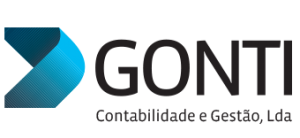Esta Política de Privacidade estabelece o compromisso da Gonti com os seus clientes ou visitantes quanto à protecção de dados pessoais, informando o tratamento que realiza com os seus dados, assim como os direitos que lhes reconhece enquanto titulares dos dados, no cumprimento do Regulamento (UE) 2016/679 (Regulamento Geral sobre a Protecção de Dados – RGPD) e da legislação de protecção de dados aplicável.
A Política de Privacidade aplica-se exclusivamente ao tratamento de dados pessoais efectuados pela Gonti no contexto das finalidades aqui previstas, nas quais se considera dado pessoal a informação relativa a uma pessoa singular, de qualquer natureza e independente do respectivo suporte, que identifique ou permita identificar essa pessoa.
A utilização deste site implica a aceitação desta Política de Privacidade.
1. Responsável pelo tratamento dos dados pessoais
A Gonti Lda., com o NIF 514030887, é a entidade responsável pelo tratamento dos dados pessoais dos seus clientes ou visitantes deste site. Para quaisquer relativas aos seus dados pessoais, pode contactar-nos pelos seguintes meios:
Avenida Diogo Cão, 16A
2670-327 Loures
Telefone: (+351) 219 826 520
Email: [email protected]
2. Forma de recolha dos dados pessoais
Os seus dados pessoais são recolhidos unicamente através do formulário de contacto do site, cujo preenchimento é inteiramente voluntário.
3. Dados pessoais recolhidos
São recolhidos o nome, email e telefone. Este site utiliza também cookies, que são descritos mais abaixo.
4. Finalidade dos dados pessoais
Os dados recolhidos destinam-se a dar resposta a pedidos de orçamento ou informação, à adequação dos nossos produtos ou serviços às suas necessidades e interesses, e ao envio de novidades comerciais ou de outro teor que possam interessar-lhe.
5. Segurança dos dados pessoais
A Gonti compromete-se a tratar apenas os dados pessoais que sejam estritamente necessários à execução das finalidades acima descritas, e envidará todos os esforços para garantir a segurança e a protecção dos dados pessoais, incluindo medidas administrativas e técnicas para impedir o acesso aos seus dados, a sua utilização indevida ou a sua divulgação não autorizada.
6. Tempo de conservação dos dados pessoais
Para a comercialização de produtos e serviços, os seus dados pessoais serão conservados até que seja retirado o consentimento, dentro dos limites legais.
Para outras finalidades, a Gonti conservará os seus dados pessoais durante o período necessário para cumprir a finalidade para a qual tiverem sido recolhidos, após o qual os seus dados pessoais serão eliminados.
Poderão existir requisitos legais ou fiscais que obriguem a conservar certos dados pessoais por algum período de tempo. Nesses casos, tratando-se de uma obrigação legal ou fiscal, a Gonti terá de respeitar esse período mínimo de conservação.
Terminado o prazo máximo de conservação, a Gonti compromete-se a eliminar, destruir ou anonimizar os seus dados pessoais.
7. Partilha dos dados pessoais
Na Gonti, têm acesso aos seus dados pessoais os colaboradores que deles necessitam para cumprir as diligências comerciais ou legais necessárias.
Caso os dados pessoais sejam tratados por outras entidades para assegurar a prestação do serviço, a Gonti exigirá a tais entidades o mesmo nível de privacidade e segurança quanto aos seus dados pessoais.
Para o estrito cumprimento de obrigações legais ou fiscais, os seus dados pessoais poderão ser transmitidos a outras entidades, por exemplo tribunais ou organismos públicos.
A Gonti não partilha, em caso algum, os seus dados pessoais com outras empresas ou entidades para outros fins comerciais.
8. Consentimento dos dados pessoais
Nos termos da lei, é garantido ao titular dos dados o direito de acesso, rectificação, limitação ou oposição ao tratamento, portabilidade ou esquecimento dos seus dados pessoais. O exercício destes direitos poderá estar sujeito a limitações previstas nos termos da lei.
Para exercer qualquer um destes direitos, basta enviar-nos o seu pedido através do email [email protected] .
A Gonti analisará cuidadosamente o seu pedido, comprometendo-se a dar resposta em tempo oportuno.
9. Autoridade competente
Terá também sempre o direito de apresentar reclamação junto da autoridade competente:
Comissão Nacional de Proteção de Dados – CNPD – http://www.cnpd.pt
10. Cookies
Cookies são pequenos ficheiros ou pacotes de dados trocados entre o site e o seu browser (navegador). Este site pode usar vários tipos de cookies:
Cookies de sessão: são cookies temporários, que não ficam guardados no computador após sair do site, e que servem para analisar padrões de tráfego, permitindo-nos melhorar o conteúdo e a usabilidade do site.
Cookies analíticos: são utilizados anonimamente para efeitos estatísticos, sendo tratados por nós ou por terceiros, com o objetivo de analisar padrões de navegação no site, e melhorar o fornecimento de produtos ou serviços.
Cookies funcionais: guardam preferências do utilizador relativamente à utilização do site.
Cookies publicitários: direccionam a publicidade em função dos interesses do utilizador, ajudando a medir a sua eficácia, evitando a exibição de anúncios duplicados, etc.
11. Gestão de cookies
Os browsers (navegadores) permitem ao utilizador aceitar, recusar ou apagar cookies através das suas definições avançadas. É geralmente possível geri-las no menu “Opções” ou “Preferências”. Tenha em conta que ao desactivar os cookies pode impedir que algumas páginas ou serviços do site funcionem correctamente.
12. Actualização desta Política de Privacidade
A presente Política de Privacidade pode ser revista e actualizada periodicamente, estando a última versão sempre publicada no nosso site.
